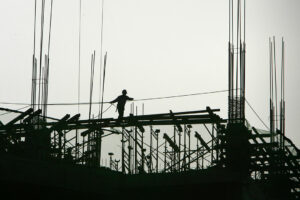
PHL poised to attract more FDIs — report
THE PHILIPPINES will likely see a rise in foreign direct investments (FDIs) amid key policy reforms, trade and investment opportunities with the US and Europe, and a growing consumer base, HSBC Global Research said.
“A paltry past has led to a bearish view in FDI, but we argue otherwise — the Philippines is geared for more FDI ahead,” it said in a report dated March 25.
“All in all, thanks to the country’s robust reform narrative, FDI sentiment in the Philippines is bound to improve in the years ahead and the general pessimism regarding the country’s FDI competitiveness ought to turn for the better,” it said.
Latest data from the central bank showed that net FDI inflows declined by 6.6% to $8.9 billion last year from $9.5 billion in 2022.
This marked the second straight year that FDI net inflows have been on a decline. However, it exceeded the Bangko Sentral ng Pilipinas’ (BSP) projection of $8 billion for the full year.
The BSP expects FDI net inflows to reach $10 billion by end-2024.
“FDI inflows may not be as robust as say, Malaysia and Vietnam, but they are a sizeable improvement from the sluggish inflows seen in the 1990s and the early 2000s. This, we believe, should be enough evidence to show that the country’s reputation of attracting FDI is, indeed, turning for the better,” HSBC said.
Data from HSBC showed that the Philippines’ FDI inflows relative to gross domestic product (GDP) stands at the “middle of the pack” among its Association of Southeast Asian Nations (ASEAN) neighbors.
HSBC attributed the improvement in the country’s business climate to “a series of bold and game-changing reforms,” such as Ease of Doing Business Act, the Corporate Recovery and Tax Incentives for Enterprises (CREATE) law, the Foreign Investment Act, the Public Service Act, and the Retail Trade Liberalization Act, among others.
“(These) reforms have immediately paid dividends, gearing the economy for more FDI ahead. A good indicator for investment interest is FDI approvals,” it added.
Data from HSBC showed that FDI approvals stood at P889 billion last year or 3.7% of GDP.
“Nonetheless, we should give credit where credit is due, and these big-ticket reforms, though nascent, signal to the world that the business climate in the Philippines is moving in the right direction,” it added.
Meanwhile, HSBC noted improved relations and recent trade and investment opportunities with Europe and the United States.
This month, the European Union and the Philippines announced the resumption of its free trade agreement negotiations, seven years after the talks were stalled.
HSBC also noted the recent visit by US Commerce Secretary Gina M. Raimondo, during which US companies announced over $1 billion worth of investments in the Philippines.
HSBC also highlighted the country’s growing consumer base. “Being one of the fastest growing ASEAN economies and with a median age of as young as 25 years old, the Philippines’ growing middle class and demographic dividend are here to stay,” it added.
However, HSBC cited risks to the FDI outlook, such as continued regulatory bottlenecks and high cost of electricity.
“Although the country’s outlook for FDI is far more robust today than in the past decade, the reality is that the Philippines is still mired by a myriad of structural and institutional challenges, enough to make some investors look elsewhere in ASEAN.”
To address these concerns, the government should focus on implementing measures to cut red tape, ramp up investments in renewable and alternative energy, utilizing the potential of fintech and digital retailing, among others.
HSBC noted the opportunity in renewable energy, which was opened up to full foreign ownership in 2022.
“FDI approvals under ‘electricity and other utilities’ in 2023 more than doubled the total investments approved under this category over the past 10 years. That’s 10 years of work done in one. As a result, renewable energy investments now account for 86% of the total FDI approvals,” it added. — Luisa Maria Jacinta C. Jocson



